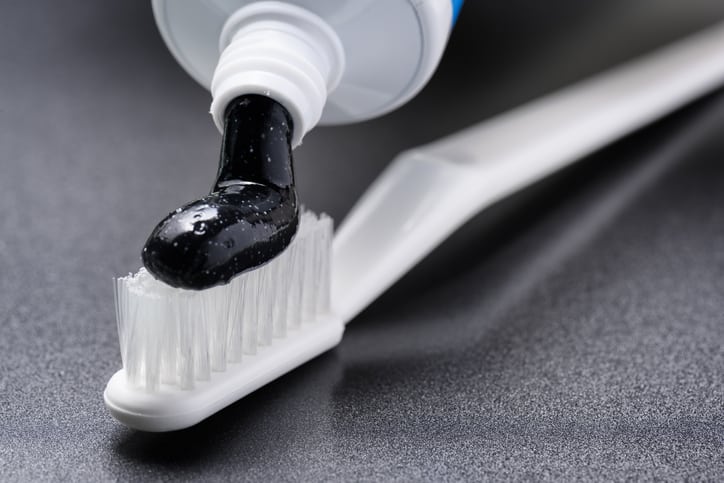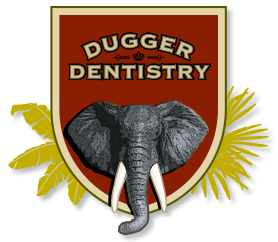Is Charcoal Toothpaste Really a Safe Way to Whiten Your Teeth?

As a West Linn cosmetic dentist, Dr. Dugger understands that patients can go to great lengths to find new and innovative ways to brighten their smiles. However, the trouble with jumping on whitening trends is that lasting damage can already be done before oral health experts even have the chance to determine whether the practice is safe.
One of the latest trends in home whitening is the use of toothpastes and mouthwashes made with activated charcoal. But now many oral health experts are warning that these brands may actually cause more harm than good to your oral health.
If the idea of using charcoal to brush your teeth sounds odd, you’re not alone. After all, charcoal is what you use to fire up the grill on the 4th of July, not what you smear onto your toothpaste. Furthermore, charcoal is gritty, dirty, and black, none of the things you associate with a brilliantly bright and healthy smile. Why would anyone choose to use these types of brands?
For starters, the charcoal in your toothpaste isn’t the same as what you’ll find in the grill. These brands of toothpaste contain activated charcoal, which is significantly different. But, according to some oral health experts, you really shouldn’t be using this type of charcoal to brush either.
What’s with the Black Toothpaste?
For the uninitiated, let’s start with a primer on what is activated charcoal and why people are choosing to brush with it.
Activated charcoal can be made from a variety of things that include coconut shells, bone char, peat (decomposed vegetable matter), petroleum coke (a byproduct of oil production), olive pits, sawdust, and actual coal. Each of these substances can be ground into a fine powder and processed at a high temperature to produce a charcoal like substance that is far more porous than the charcoal used to cook brats and hot dogs on the weekend.
Being more porous basically means that air or liquids can run through the charcoal better, and that the substance is cleaner than traditional charcoal briquettes because it has been detoxified.
So considering that activated charcoal is made from a list of things you’d never voluntarily put into your mouth, why are people brushing with it?
Activated charcoal acts like a gentle abrasive that’s not only perfect for polishing a surface – such as your teeth – but that also works to remove surface stains that change the color of tooth enamel. Once the abrasive elements of charcoal dislodge the stains from the surface of your teeth, it also binds them together, and carries them out of the mouth when you spit and rinse. As a result, brushing with charcoal toothpaste offers an incredibly effective whitening solution and a better looking smile.
But there is a catch.
The Oral Health Risks of Charcoal Toothpaste
If you simply consider the idea behind the use of charcoal toothpaste and how it helps to remove stains, it seems pretty ingenious. While these types of toothpastes do technically work, the long-term effects are what you need to consider before brushing.
In actually, the activated charcoal itself isn’t what whitens your teeth. It’s a combination of stain removal and making your normally pink gums appear a little rosier that makes your smile appear whiter and brighter. While your teeth could potentially stand the occasional use of a charcoal toothpaste, it should never be your primary toothpaste.
Due to the abrasive nature of activate charcoal, daily use can wear down tooth enamel, causing sensitivity and irreversible enamel loss. It also won’t take long for charcoal toothpaste to start damaging your oral health. Depending on how frequently and how hard you brush, it may only take a few days before abrasive charcoal starts to cause enamel loss.
Your West Linn Cosmetic Dentist Can Help
If you desire a whiter, brighter smile, Dr. Dugger can help. At Dugger Dentistry, we offer a safe and highly effective teeth whitening option that won’t damage your enamel. Don’t rely on gimmicks or unsafe whitening options to get the smile you’ve been wanting. Contact our office today to schedule your whitening appointment.
